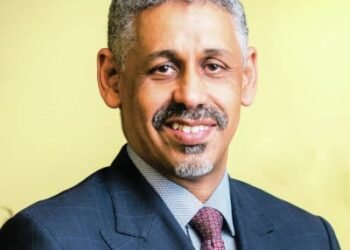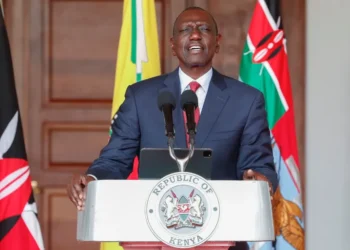The African Union Commission will convene a pivotal conference in Lomé, Togo, from May 12 to 14, 2025, as the continent grapples with a mounting debt crisis threatening development and social progress.
Organized by the Department for Economic Development, Tourism, Trade, Industry, and Minerals (ETTIM), the African Union Conference on Debt will rally representatives from AU Member States, African Central Banks, Regional Economic Communities, multilateral financial institutions, and civil society to address pressing challenges. It is under the theme: “Africa’s Public Debt Management Agenda: Restoring and Safeguarding Debt Sustainability.”
Key objectives for the three-day gathering include facilitating knowledge exchange among African policymakers, refining strategies for sound debt management, and articulating a continental position on global financial architecture reforms. The conference will also explore innovative debt financing mechanisms that align with sustainability goals and economic recovery efforts.
Grim fiscal realities underscore the urgency of the meeting. As of 2024, Africa’s public debt stood at $1.17 trillion. This explosion in borrowing has been driven by successive global shocks, the lingering effects of the COVID-19 pandemic, and tightening international financial conditions.
While GDP growth across the continent is projected to reach 4.1% in 2025, this rebound falls short of meeting poverty-reduction and development goals, leaving millions exposed to socio-economic vulnerabilities.
Recent analyses by the African Development Bank (AfDB), the International Monetary Fund (IMF), and UN agencies reveal that unsustainable debt servicing costs are severely straining national budgets. On average, African countries are dedicating 11.6% of their export earnings to debt repayments, diverting vital resources from essential services such as healthcare, education, and infrastructure development.
Debt Repayment Suffocates Growth
More than half of African nations now spend more on debt repayments than on public health or education—a trend that is widening inequality and suffocating growth. Countries like Zambia, which defaulted on its debt in 2020, and Egypt, where debt has constrained food imports, have become emblematic of the crisis. The AfDB warns that 21 African countries are currently in or at high risk of debt distress, as currency devaluations and inflation continue to weaken fiscal stability.
“When debt entrenches poverty, it’s a moral failure,” declared Bishop Charles Kasonde during the launch of the Jubilee 2025 Debt Cancellation Campaign, a faith-based initiative pressing for global debt relief. The campaign reflects growing advocacy across civil society demanding equitable solutions and structural reforms.
Among these reforms, domestic revenue mobilization has emerged as a crucial pillar. IMF studies indicate that sub-Saharan Africa could generate between $50 billion and $80 billion annually through improved tax compliance and broader tax bases. Countries like Rwanda and Kenya are already reaping benefits from digital tax systems and public-private infrastructure partnerships, showcasing practical models for revenue enhancement.
Leaders such as Senegal’s President Macky Sall and AfDB President Akinwumi Adesina have criticized outdated multilateral lending frameworks for restricting Africa’s access to affordable credit. Both have advocated for reforms that include expanded concessional lending and fairer restructuring mechanisms. The Jubilee 2025 Coalition has added momentum to these calls, emphasizing the intersection of debt justice, human rights, and climate resilience.
In terms of policy pathways, the AU and its partners are also discussing the feasibility of debt service moratoriums and mechanisms such as debt-for-climate swaps. Over the long term, experts are championing strategies such as economic diversification, boosting intra-African trade through the African Continental Free Trade Area (AfCFTA), and reforming credit rating agencies to help lower borrowing costs.
The conference is a test of whether African governments, financial institutions, and international partners can align on transformative action. Without decisive moves, the consequences on Africa’s human capital and economic resilience could be profound, with regional stability hanging in the balance.
READ ALSO: Ghana’s Shocking $6bn Debt Increase Adds Fuel to Fiscal Fire







